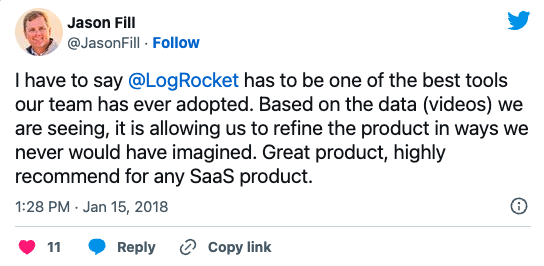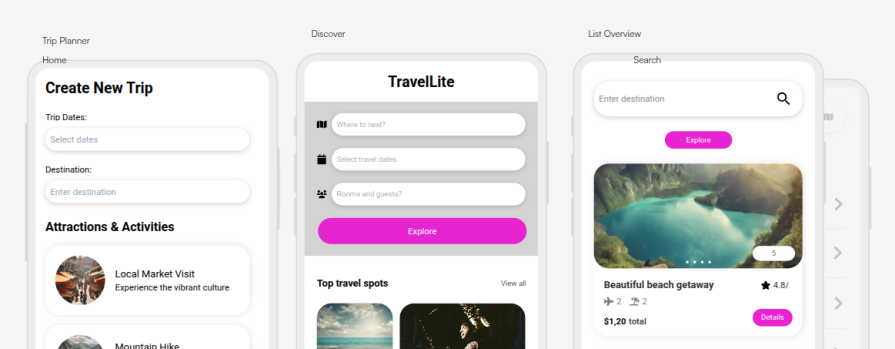#UX design
#UX design
[ follow ]
#ux-design #user-research #cognitive-load #accessibility #e-commerce #ai-in-design #prototyping #onboarding
fromMedium
3 weeks agoAvoiding the "unexpected item in the bagging area" user experience on earth
The reason is a lack of user research to understand how people think and act when shopping, and how they navigate their way through the experience to get it done. It's the user experience concept of a mental model, if you want to get fancy, or the application of a system matching the real-world heuristic they teach you about in college.
UX design
fromSmashing Magazine
1 month agoHow To Design For (And With) Deaf People - Smashing Magazine
When we think about people who are deaf, we often assume stereotypes, such as "disabled" older adults with hearing aids. However, this perception is far from the truth and often leads to poor decisions and broken products. Let's look at when and how deafness emerges, and how to design better experiences for people with hearing loss. Deafness Is A Spectrum Deafness spans a broad continuum, from minor to profound hearing loss.
UX design
fromNielsen Norman Group
2 months agoPrompt to Design Interfaces: Why Vague Prompts Fail and How to Fix Them
The rise of GenAI tools has introduced a new paradigm for design work - rather than crafting interfaces by directly manipulating elements in design tools, designers can prompt AI-prototyping tools to generate designs. When you're working with AI, the output quality will be largely dependent on the specificity of the prompt. This article discusses common issues with vague text prompts and offers recommendations on how to achieve better results from AI-prototyping tools without undertaking the bulk of the design work yourself.
Artificial intelligence
fromMedium
2 months agoChatGPT talks too much and it's ruining learning
Ask any instructor what helps students learn, and it's unlikely any of them will answer "a really big wall of text". It's incredible to me, as both a university instructor and a UX designer, that the army of people working at OpenAI are not imagining better tools for our students. I want to walk you through a design pattern in ChatGPT that, despite its good intentions, might be creating unintended hurdles for students.
Higher education
fromTreehouse Blog
2 months agoHow to Choose the Right Learning Path in Tech
Choosing a learning path in tech can feel overwhelming when you're just starting out. With so many options, from design to coding to data, it's normal to feel unsure about where to begin. The good news is that you do not need prior experience to explore these fields. With curiosity and a willingness to experiment, you can find a path that fits your goals and interests.
Online learning
fromLogRocket Blog
2 months ago14 cognitive principles every UX designer should know - LogRocket Blog
When my order arrived, I kept wondering how I could've missed something so obvious. The answer? Selective attention - our brain's way of focusing on what seems most important in the moment, while filtering out the rest. Cognitive principles like selective attention shape every user interaction - what people notice, remember, learn, and even the mistakes they make. Apply them thoughtfully, and you can reduce mental effort, guide users' attention, ease recall and retention, and even motivate users.
UX design
fromNielsen Norman Group
3 months agoGood from Afar, But Far from Good: AI Prototyping in Real Design Contexts
Over the past few months, the UX design field has been flooded with AI-powered prototyping tools that generate interfaces instantly from natural-language prompts. Despite the massive marketing hype, our evaluation with real design scenarios revealed that these tools can follow instructions to achieve a general goal, but they lack the sophistication to weigh design tradeoffs and produce thoughtful, high-quality designs without extensive guidance from humans.
UX design
UX design
fromeLearning
3 months agoUX Design with Adobe Captivate: Transform Your Courses from Functional to Exceptional - eLearning
Design learner-centered, accessible, and interactive eLearning in Adobe Captivate using UX principles to enhance comprehension, reduce cognitive load, and improve retention.
fromLogRocket Blog
3 months agoAI-first helpdesks: The UX shift businesses can't ignore - LogRocket Blog
Businesses replacing human support agents with chatbots isn't new. Even before the AI chatbots of today, which are extremely common now, companies were using heavily engineered chatbots that could understand only certain keywords and respond with specific answers. They were terrible, but the one remarkable thing about them is that they showed us what different demographics really expect from customer support and set the standard for how AI-first helpdesks should work - not only in terms of support agents but support overall, including documentation.
UX design
fromMedium
3 months agoWhat 5 Musicians Taught Us About Designing a Guitar Plugin Store
VeJa is a company that creates guitar plugins simulating amplifiers for music production. They were selling exclusively on the MOD Devices platform but wanted to expand their reach with their own online store. The challenge? They had great products, a loyal niche following, but no website. Just a logo. And us. The brief was simple: Our bootcamp team of three had just 8 days to prototype a e-commerce platform that would help VeJa compete
UX design
fromFast Company
3 months agoNew AI browsers could usher in a web where agents do our bidding-eventually
Using the internet with the help of an AI is a real thing-and it became even more real Tuesday when OpenAI, the generative AI industry's de facto avatar, announced the release of its new ChatGPT Atlas browser. A new race has begun to reinvent the Chrome-style browser experience we've used for so long: The race to reinvent the browser around natural language AI.
Artificial intelligence
fromClickUp
3 months agoFree Miro User Flow Templates to Streamline UX Design | ClickUp
A product team once spent weeks debating why their new signup process wasn't working. The forms looked simple, the copy was clear, and the buttons were exactly where they thought users wanted them. But when they mapped out the steps a customer actually took, they saw the problem: users were bouncing midway because the journey was cluttered with extra clicks. 🫤
UX design
fromMedium
4 months agoThe End of the User Interface?
The future of the human experience with digital products necessarily depends on the relationship we will have with information - whether predicted or post-dicted. The use of Artificial Intelligence (AI) and, soon, quantum computing, will dictate the evolution of the digital environment we live in and, consequently, the evolution of human beings themselves over the coming decades - or perhaps the next century.
UX design
fromMedium
4 months agoHero-centered design for meaningful products
Seeing your life as a Hero's Journey can make you happier, more resilient, and more fulfilled. But these same principles can also transform your digital products, helping you create more motivating and meaningful user experiences. In this article, I'll share insights from a recent paper on the psychology of the Hero's Journey. I'll explain what it is, guide you through a simple exercise to help you experience its psychological effects, and explore how you might heroify your own digital products.
UX design
fromSmashing Magazine
5 months agoFrom Data To Decisions: UX Strategies For Real-Time Dashboards - Smashing Magazine
Real-time dashboards are decision assistants, not passive displays. In environments like fleet management, healthcare, and operations, the cost of a delay or misstep is high. Karan Rawal explores strategic UX patterns that shorten time-to-decision, reduce cognitive overload, and make live systems trustworthy. I once worked with a fleet operations team that monitored dozens of vehicles in multiple cities. Their dashboard showed fuel consumption, live GPS locations, and real-time driver updates.
UX design
fromLogRocket Blog
5 months agoStop writing PRDs for AI - start using prompt sets instead - LogRocket Blog
UX designers frequently work in ambiguous spaces, most notably the discovery phase. We collaborate closely with product managers to identify new problems, understand users' goals and frustrations, and strategically develop solutions to address their needs. However, the best solutions aren't always straightforward, and with AI being embedded in every new product and feature, it makes things a bit more challenging. Just as we get comfortable using AI, something changes or evolves. This makes AI features unpredictable and difficult to document requirements for.
UX design
[ Load more ]

















